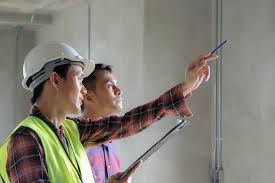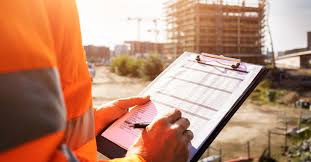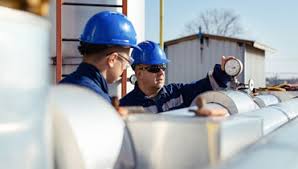Inspection of production lines is a critical aspect of ensuring third party inspection companies in egypt efficiency in manufacturing processes. The careful and thorough examination of production lines is essential for identifying any potential issues or discrepancies that may affect the overall operation. In this article, we will explore the importance of inspection in maintaining optimal efficiency in production lines and the various benefits it can offer to businesses. From identifying bottlenecks and safety hazards to ensuring quality control and compliance with regulations, inspection plays a vital role in the smooth and efficient operation of production lines.
Ensuring efficiency in production lines is essential for any manufacturing business. Inspection of production lines plays a crucial role in maintaining this efficiency by identifying and addressing any issues or defects in the production process. Regular inspection of production lines helps to prevent equipment breakdowns, reduce downtime, and minimize costly repairs. It also ensures that products are being manufactured to the required standards and specifications, thus maintaining overall product quality. By identifying third party inspection company in egypt and correcting any issues early on, inspection of production lines helps to improve the overall productivity of the manufacturing process. This can lead to cost savings and increased profitability for the business. In addition, inspection of production lines is important for ensuring compliance with industry regulations and safety standards. It helps to identify any potential hazards or risks in the production process, thereby ensuring a safe working environment for employees. Overall, inspection of production lines is crucial for ensuring efficiency, maintaining product quality, and meeting industry standards, ultimately leading to the success and profitability of a manufacturing business.
Ensuring efficiency in production lines is crucial for maintaining a competitive edge in the manufacturing industry. Inspection of production lines is a fundamental part of ensuring that the entire manufacturing process runs smoothly. This involves carefully examining the equipment, machinery, and processes to identify any inefficiencies, faults, or potential issues that could impact production. Regular inspection of production lines is vital for preventive maintenance. It allows for the detection of any signs third party inspection companies of wear and tear, addressing potential problems before they escalate into costly downtime or major breakdowns. This proactive approach helps to keep the production line operating at optimal levels, minimizing disruptions and maintaining a consistent output. Quality control is another critical aspect of inspecting production lines. By monitoring the production process, including raw materials, manufacturing methods, and finished products, any deviations from quality standards can be swiftly identified and rectified. This is essential for consistently delivering high-quality products to customers, upholding the company's reputation, and ensuring customer satisfaction. Moreover, inspection of production lines is essential for compliance with regulatory requirements and safety standards. By conducting thorough inspections, manufacturers can ensure that their processes align with industry regulations, minimizing the risk of non-compliance issues and potential legal repercussions. It also contributes to providing a safe and secure working environment for employees. In essence, the inspection of production lines plays a crucial role in maintaining operational efficiency, product quality, and compliance with industry standards, all of which are vital for the success and sustainability of a manufacturing business.
The Importance of Regular Inspection of Production Lines

Regular inspection of production lines is of paramount importance in maintaining high productivity and ensuring product quality. By conducting regular inspections, potential issues or malfunctions can be identified and resolved promptly, preventing costly downtime and production delays. Additionally, regular inspections can help to identify opportunities for process improvement and optimization, ultimately leading to increased efficiency and cost savings. Ultimately, the consistent inspection of production lines is crucial for maintaining a safe and efficient manufacturing environment, and for delivering high-quality products to customers.
Key Benefits of Implementing a Production Line Inspection

1. Quality Assurance: A production line inspection ensures that every product meets the required quality standards, reducing the chances of defective or substandard products reaching the market. 2. Cost Savings: By identifying and addressing issues in the production process early on, companies can avoid costly recalls and rework, leading to significant cost savings. 3. Compliance with Regulations: Regular production line inspections help companies stay compliant with industry regulations and standards, reducing the risk of fines and legal issues. 4. Improved Efficiency: Identifying bottlenecks, equipment malfunctions, and other inefficiencies through inspection allows companies to optimize their production processes and maximize output. 5. Customer Satisfaction: Consistently delivering high-quality products through production line inspections helps maintain customer trust and loyalty, leading to increased sales and positive brand reputation.
Maximizing Efficiency through Production Line Inspections
third party inspection companies in egypt

Maximizing Efficiency through Production Line Inspections involves systematically evaluating each stage of the production process to identify and address any potential bottlenecks, defects, or inefficiencies. This can include regular visual inspections, testing of equipment and machinery, and monitoring of quality control measures. By thoroughly examining the production line, companies can optimize their operations, improve product quality, and reduce downtime and waste. Additionally, implementing regular inspections can help identify opportunities for process improvement and facilitate continuous refinement of production processes.
Quality Control: Ensuring Production Line Compliance

Quality control is an essential process in manufacturing and production to ensure that products meet the required standards and comply with regulations. It involves monitoring and inspecting the production line to identify any defects or deviations from the specified requirements. Quality control also involves implementing corrective actions to address any issues identified and prevent them from recurring in the future. By ensuring production line compliance, quality control helps to maintain product consistency, reliability, and customer satisfaction. This process is typically carried out by trained quality control inspectors who follow established protocols and guidelines to uphold the highest quality standards in the manufacturing industry.
Streamlining Processes with Effective Production Line Inspections
Streamlining processes with effective production line inspections involves conducting regular and thorough examinations of the production line to identify areas for improvement, optimize workflow, and minimize waste. This may include implementing standardized inspection checklists, utilizing automated inspection technologies, and training staff in effective inspection techniques. By streamlining production line inspections, companies can increase efficiency, reduce downtime, and ensure consistent product quality. Additionally, it helps to identify and address any potential issues before they escalate, thus contributing to overall operational excellence.
How Industry Leaders are Revolutionizing Production Line Inspections
Industry leaders are revolutionizing production line inspections by implementing advanced technologies such as artificial intelligence, machine learning, and automation. These technologies enable real-time monitoring and analysis of production processes, helping to identify defects and inefficiencies more accurately and efficiently than traditional manual inspections. Additionally, the use of drones and robotics equipment allows for inspection of hard-to-reach or hazardous areas, improving overall safety and effectiveness in the production line. These innovations are transforming the way inspections are conducted, enhancing quality control and driving greater productivity in manufacturing operations.
Common Mistakes to Avoid in Production Line Inspections
- Failing to properly train inspection personnel: It's crucial to ensure that inspectors are well-trained in the specific requirements and standards for the production line they are inspecting. Without proper training, inspectors may miss critical defects or non-conformities. - Inadequate sampling size: Using a small sample size for inspection runs the risk of not capturing the full range of potential defects. It's important to determine an appropriate sampling size based on statistical analysis and the criticality of the product being inspected. - Lack of consistency in inspection criteria: Inspectors should use consistent and standardized criteria for evaluating product quality. Without clear criteria, there is a risk of subjective judgments and inconsistent inspection results. - Ignoring root cause analysis: When defects are discovered, it's important to conduct thorough root cause analysis to understand the underlying reasons for the issues. Failing to do so may result in recurring problems and production delays. - Over-reliance on automated inspection systems: While automated inspection systems can be valuable, they are not foolproof and may miss certain types of defects. It's important to supplement automated systems with human inspection to ensure comprehensive defect detection. - Inadequate record-keeping: Accurate and detailed record-keeping is essential for tracking inspection results and identifying trends over time. Without proper documentation, it can be difficult to identify recurring issues and make necessary process improvements.
The Future of Production Line Inspection Technology
The future of production line inspection technology is centered around automation, artificial intelligence, machine learning, and advanced robotics. These technologies are shaping the way manufacturers conduct quality control and ensure that their products meet industry standards. With the integration of AI and machine learning, inspection systems can analyze data in real time, identify defects or anomalies, and make adjustments on the fly without human intervention. This not only improves the efficiency and accuracy of the inspection process but also reduces the risk of human error. Robotics and automation are also playing a significant role in the future of production line inspection, as they can perform repetitive and labor-intensive tasks with greater speed and precision. Overall, the future of production line inspection technology is focused on leveraging advanced technologies to streamline the inspection process, improve product quality, and minimize production costs.